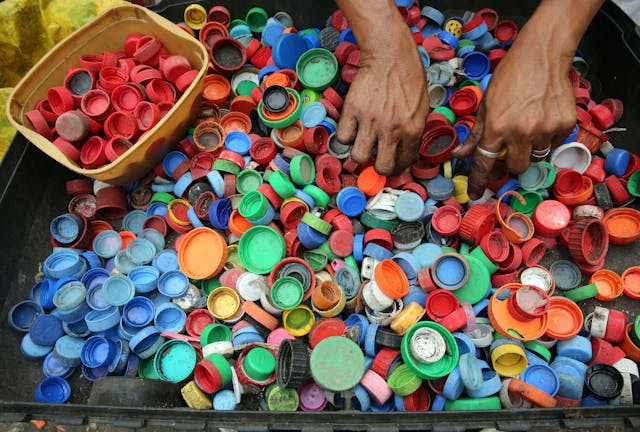Comments
- No comments found

Sustainability is not just a buzzword but a business imperative as the reality of global warming continues to emerge.
For delivery companies, operating in a sector inherently linked with high energy consumption and carbon emissions, embracing sustainability is both a challenge and an opportunity. Adopting eco-friendly practices benefits the planet and can drive efficiency, enhance brand reputation, and open up new market opportunities. This article outlines key steps delivery businesses can take to boost their sustainability credentials and explains why making the shift is essential for future success.

The first step towards sustainability is understanding the environmental impact of your operations. This involves calculating your carbon footprint, which encompasses all emissions from your vehicles, energy use in buildings, and even indirect sources like employee travel and waste management.
Strategies for Reduction:
Vehicle Emissions: Consider transitioning to electric or hybrid vehicles for local deliveries. For longer routes, ensure your vehicles are well-maintained and explore the use of biofuels or other alternative energy sources.
Energy Efficiency: Implement energy-saving measures in your offices and warehouses, such as LED lighting, smart thermostats, and solar panels.
Waste Management: Minimise waste by optimising packaging, encouraging recycling, and adopting a digital-first approach to reduce paper use.
Optimise Your Routes
Efficient route planning is not only crucial for timely deliveries but also plays a significant role in reducing fuel consumption and emissions. Advances in technology offer sophisticated solutions for route optimisation, taking into account traffic patterns, delivery windows, and vehicle capacity to minimise unnecessary mileage.
Leveraging Technology for Efficiency:
Transitioning to a green fleet is a cornerstone of sustainability for delivery businesses. This involves choosing vehicles with lower emissions and adopting driving practices that reduce fuel consumption and carbon footprint.
Key Components of a Green Fleet Strategy:
Invest in Electric Vehicles (EVs): Gradually replace your fleet with electric or hybrid vehicles. Although the initial investment may be higher, the long-term savings in fuel and maintenance, along with environmental benefits, are substantial.
Driver Training Programs: Implement training programs that teach eco-driving techniques, such as smooth acceleration and braking, efficient gear usage, and speed optimisation, to reduce fuel consumption.
Monitor Vehicle Performance: Use telematics systems to monitor vehicle health, fuel efficiency, and driver behaviour in real-time, allowing for timely interventions to maintain optimal performance.
Sustainability extends beyond your fleet and operations; it's also about fostering a culture of environmental responsibility among your employees and stakeholders. Encouraging sustainable practices within your organisation can amplify your efforts and contribute to a larger positive impact.
Cultivating a Culture of Sustainability:
Engage Employees: Involve employees in sustainability initiatives and decision-making processes. This can increase awareness, foster a sense of ownership, and encourage the adoption of eco-friendly practices both at work and at home.
Implement Office Sustainability Programs: Reduce energy consumption, waste, and water use in your offices and facilities. Encourage recycling, minimise single-use items, and promote digital documentation to reduce paper waste.
Communicate Your Commitment: Regularly share your sustainability goals, achievements, and challenges with your team and stakeholders. Transparency can build trust and inspire others to take action.
Packaging plays a significant role in the environmental impact of delivery operations. Transitioning away from plastic to sustainable packaging options can significantly reduce your business's waste and carbon footprint. It also responds to the growing consumer demand for eco-friendly products and services.
Adopting Eco-Friendly Packaging:
Use Recycled Materials: Use packaging made from recycled or biodegradable materials to minimise the environmental impact.
Minimise Packaging Use: Evaluate your packaging practices and seek ways to reduce excess without compromising product safety. Consider implementing a return system for reusable packaging.
Educate Customers: Inform your customers about your sustainable packaging initiatives and encourage them to recycle or dispose of packaging responsibly.
Technology plays a pivotal role in enabling delivery businesses to achieve their sustainability goals. Innovations in logistics, data analysis, and customer engagement can drive efficiencies, reduce waste, and enhance service offerings in environmentally friendly ways.
Exploring Technological Solutions:
Data Analytics for Efficiency: Use data analytics to gain insights into your operations, identifying areas for improvement in fuel usage, route optimisation, and customer delivery preferences.
Invest in Renewable Energy Technologies: Explore opportunities to incorporate renewable energy sources, such as solar or wind power, into your operations, reducing reliance on fossil fuels.
Enhance Customer Engagement: Develop digital platforms that allow customers to choose eco-friendly delivery options, such as consolidated deliveries or packaging take-back schemes, further promoting sustainability.
In the quest for sustainability, the companies you choose as partners can have a substantial impact. From suppliers to third-party logistics providers, selecting partners who share your commitment to the environment can amplify your sustainability efforts and ensure consistency across your supply chain.
Building Sustainable Partnerships:
Evaluate Partners’ Sustainability Practices: Assess the environmental policies and practices of potential partners. Look for those who prioritise sustainability through actions like using renewable energy, minimising waste, and supporting eco-friendly initiatives.
Foster Collaboration on Sustainability Projects: Work with your partners on joint sustainability projects, such as developing sustainable packaging solutions or co-investing in carbon offset programs.
Promote Transparency and Accountability: Encourage open sharing of sustainability metrics and achievements. This mutual accountability can drive continuous improvement and innovation in environmental performance.

Effective waste management is a critical component of environmental stewardship for delivery businesses. You can significantly reduce your ecological footprint by implementing robust recycling programs and seeking ways to minimise waste throughout your operations.
Implementing Waste Reduction Strategies:
Minimise Packaging Waste: Use recyclable, compostable, or reusable packaging materials and design your packaging to use the minimum amount necessary to safely transport your goods.
Recycle and Reuse within Operations: Establish systems for recycling office materials, electronic waste, and operational supplies. Explore opportunities for reusing items within your operations.
Educate Employees and Customers: Raise awareness about your recycling programs and encourage participation. Educating your stakeholders about the importance of waste reduction can lead to more sustainable behaviours.
Obtaining sustainability certifications can validate your environmental efforts and demonstrate your commitment to potential customers and partners. Certifications can also provide a framework for measuring and improving your sustainability performance.
Pursuing Sustainability Certifications:
Research Relevant Certifications: Identify certifications relevant to your industry and operations, such as ISO 14001 for environmental management or specific eco-labels for transport and logistics.
Meet and Maintain Standards: Work to meet the criteria set by these certifications, which often involve reducing emissions, conserving resources, and implementing sustainable business practices.
Leverage Certification in Marketing: Use your sustainability certifications to differentiate your business and appeal to environmentally conscious customers. Highlighting these achievements in your marketing can enhance your brand’s reputation and support business growth.
Leave your comments
Post comment as a guest